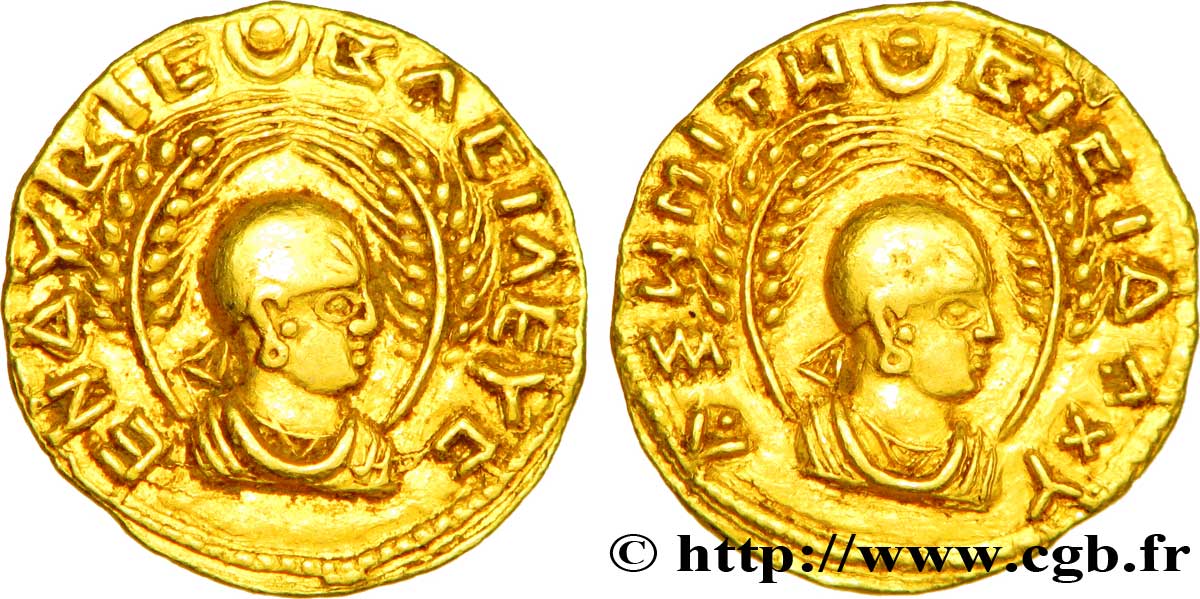正面
正面的说明书 Buste drapé à droite, la chevelure recouverte d'un bonnet décoré sur sa partie avant ; l'ensemble entre deux épis de blé partant des épaules ; légende autour avec un croissant pointé à 12 heures ; grènetis.
正面铭文 ENDUBIS - BASILEUS
正面的翻译 (roi Endubis).
背面
背面的说明书 Buste drapé à droite, la chevelure recouverte d'un bonnet décoré sur sa partie avant ; l'ensemble entre deux épis de blé partant des épaules ; légende autour avec un croissant pointé à 12 heures ; grènetis.
背面铭文 AXWMITW - BISIAXU
背面的翻译 (des Axoumites de Dakhu).
评论
历史细节
AKSUM - AKSUMITE KINGDOM - ENDUBIS
(c. 270-300 AD)
Aksum or Aksum was the capital of a kingdom located in northern Ethiopia in the current province of Tigray. Tradition has it that Ethiopia was part of the famous biblical kingdom of Sheba and that the wealthy dignitary who came to visit Solomon was none other than the Queen of the Ethiopians.. However, the kingdom of Sheba was in all likelihood located in southwestern Arabia. The Aksumites played a big role in the trade of the Red Sea and were very early in contact with the Egyptians, the Greeks then the Romans. By the 3rd century CE, the Kingdom of Aksum had been established over Ethiopia. Endubis is the first king of Axum to have minted coins. Coins in his name are known in gold and silver. Two different coins can appear on Endubis coins; on some coins he described himself as "king of Axum" and on others appeared a title which could be translated "man of", according to S. Munro Hay. The Kingdom reached its peak in the 4th century, under the reign of Ezana (c. 320-356). Aksum was the first African state to mint coins! The kingdom was evangelized by Frumentius, a Syrian merchant who was consecrated as the first bishop of the Kingdom by Athanasius of Alexandria. A convert to Christianity himself, Ezana made it the religion of the entire empire.. For a time, Ethiopia had commercial relations (especially in ivory) with the Western world, but these were broken in the 7th century.. For nearly a thousand years after this, Ethiopia was isolated from the rest of the Christian world, because it protected itself in the North and East against Muslim invasions, and in the south against pagan invaders.. It was more particularly the conquest of Egypt and Nubia by the Muslims which cut Ethiopia off from the rest of Christianity.. Unlike other African countries, Ethiopia never experienced a long period of European colonization, just a brief Italian presence around the turn of the century and from 1935 to 1941.. In 1974, a military coup violently ended the old empire.








 对产品描述纠错
对产品描述纠错 打印
打印 分享我的选择
分享我的选择 提问
提问 Consign / sell
Consign / sell




